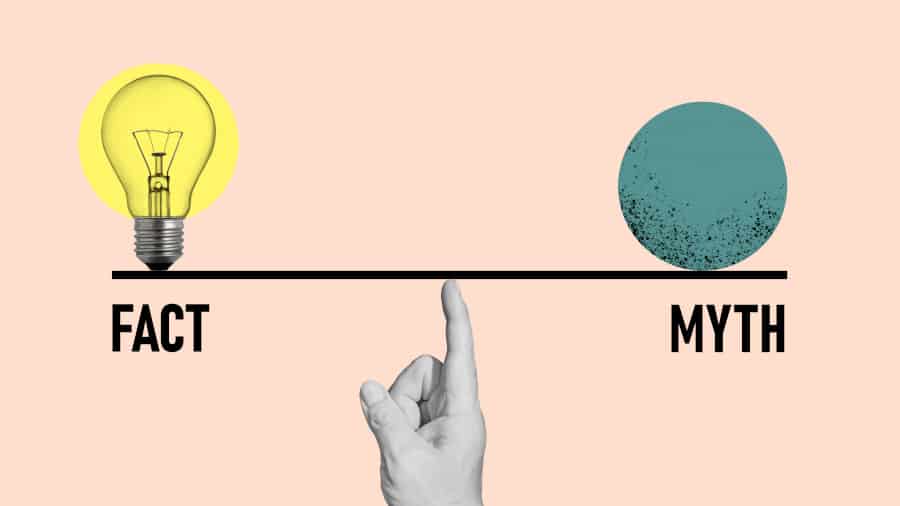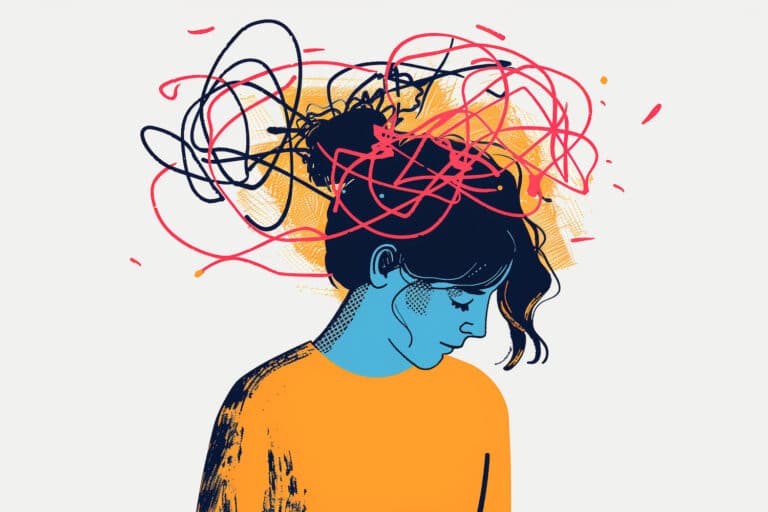Myths about eating disorders are widespread and add to unnecessary and damaging stigmas and misunderstandings about these severe physical and mental health disorders. When it comes to eating disorders such as bulimia nervosa, anorexia nervosa, and binge eating disorder, there are a lot of “misses” — misconceptions, misunderstandings, misinformation, and misrepresentation. Let’s take a look at some of the most common misconceptions about eating disorders and get the eating disorder facts straight.
Myth: Eating disorders are not serious conditions.
Fact: Eating disorders are serious mental health conditions that can have severe physical, emotional, and psychological consequences. They have the highest mortality rate of all psychiatric illnesses.
Myth: Eating disorders are just a phase.
Fact: People suffering from eating disorders are not going through a phase. Eating disorders can last a lifetime and require proper diagnosis, treatment, and services from a team of healthcare specialists trained in eating disorders.
Myth: Eating disorders only affect young, white females.
Fact: Eating disorders can affect individuals of any age, gender, race, or ethnicity. They do not discriminate and can impact people from diverse backgrounds. Research even shows that males may suffer from binge eating disorder nearly as much as females (1).
Myth: Eating disorders are about food and the fear of gaining weight.
Fact: Individuals suffering from eating disorders are not just focused on food and weight. They are often trying to gain control of some aspect of their life, and disordered eating behaviors are their way of coping with negative emotions or difficult situations.
Myth: People with eating disorders are always thin.
Fact: Eating disorders come in various forms, and individuals may not show obvious physical signs. Many people suffering from eating disorders are not underweight at all. It is important not to make assumptions based on appearance and body type.
Myth: Bulimia means you vomit after you eat.
Fact: Vomiting is just one compensatory behavior used to purge after an episode of overeating. Other purging behaviors include laxative and enema use, diet pill use, and excessive exercise (2).
Myth: People with eating disorders are trying to act out against their families.
Fact: Eating disorder behaviors are rarely intentionally used to hurt loved ones. Individuals suffering from eating disorders often experience guilt and shame and are worried about disappointing their loved ones.
Myth: Parents are to blame for their child’s eating disorder.
Fact: No parenting style causes an eating disorder. Factors such as other psychiatric illnesses, trauma, or genetics may have an influence. Parents are essential to their child’s successful and long-lasting recovery. They can be their loved one’s most significant source of support (3).
Myth: You can’t recover from an eating disorder.
Fact: Recovery from an eating disorder is possible. It may be a slow and challenging process, and relapses may happen, but individuals can achieve long-lasting recovery with the proper treatment and ongoing support (4).
Remember, it’s important to challenge these myths and promote an accurate understanding of eating disorders to reduce stigma, encourage early intervention, and support individuals suffering from these illnesses.
Healing Happens at Magnolia Creek
Seeking support and gaining knowledge about available treatment options is crucial for recovery. At Magnolia Creek, our dedicated team of expert eating disorder specialists provides tailored treatment that suits each individual’s needs. Contact us today to discover how we can assist you or your loved one in the healing process.
References
- National Eating Disorders Collaboration. (n.d). Myths. Retrieved September 2, 2023.
- Texas Children’s Hospital. (2023). Don’t fall for these 8 myths on eating disorders.
- University of Rochester Medical Center. (2023). Myths about eating disorders.
- National Eating Disorders Association. (2022). Recovery & relapse.
Author Bio
Kate Delaney Chen, BSN, RN-BC, is a healthcare writer and registered nurse with over 17 years of bedside experience. She specializes in Psychiatric Nursing and Nephrology and works at a nationally recognized Inpatient Eating Disorders Program.




